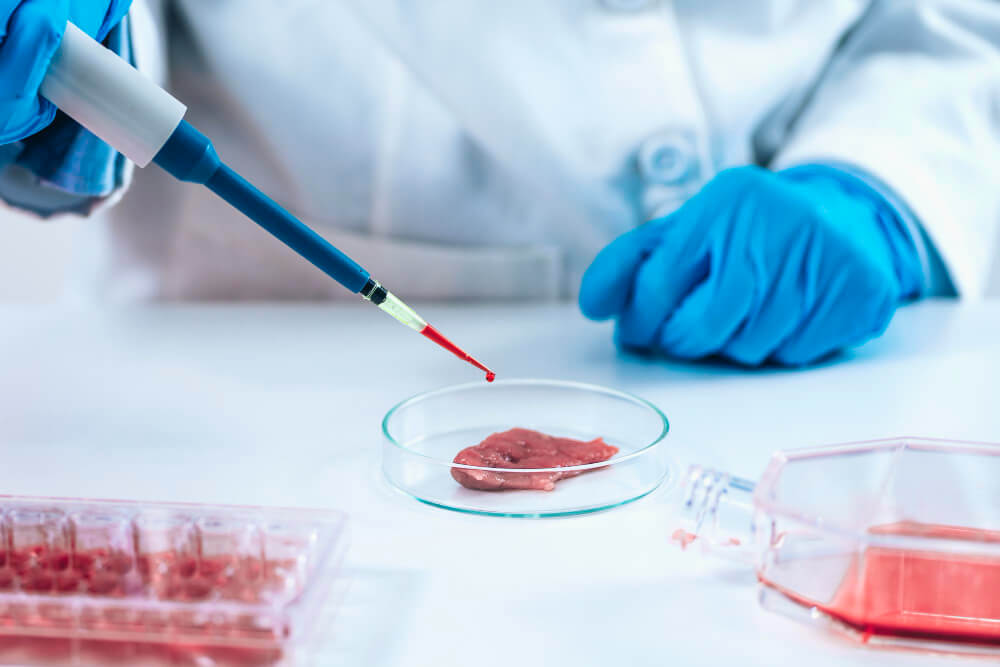Why iron stores matter for embryo implantation, hormone regulation, and early pregnancy success.
Ferritin, a protein that stores iron in the body, plays a crucial role in fertility and embryo implantation due to its key functions in maintaining iron balance and supporting the health of the reproductive system. Iron is essential for various physiological processes, including oxygen transport, energy production, and cellular metabolism, all of which are important for a successful pregnancy.
Here’s why ferritin is important for implantation and overall reproductive health:
1. Iron and Uterine Health
- Oxygen Delivery: Ferritin is a storage form of iron that ensures the body has enough available iron to produce hemoglobin, the protein in red blood cells that carries oxygen. Adequate oxygen supply is critical to the proper functioning of tissues, including the uterus. For successful embryo implantation, the uterus needs a well-oxygenated environment to nurture the developing embryo. Iron deficiency can lead to poor blood circulation, making it harder for the embryo to implant in the uterine lining.
- Endometrial Lining: The uterine lining (endometrium) must be thick enough and have adequate blood supply to support embryo implantation. If a woman is iron deficient, it could impair the development of the endometrial lining, making it less receptive to the embryo. Ferritin levels reflect iron stores in the body, and low ferritin may indicate insufficient iron availability, which could affect uterine blood flow and the health of the endometrium.
2. Role of Iron in Cellular Metabolism and Division
- Cellular Function and Division: Iron is essential for cellular metabolism, DNA synthesis, and cellular division—all of which are necessary during the early stages of pregnancy. After fertilization, the embryo undergoes rapid cell division and development before implantation. Low ferritin levels could impair the cellular functions required for successful embryo development and implantation, potentially hindering the embryo’s ability to implant in the endometrium.
- Supporting Early Development: Iron is also involved in the synthesis of key proteins and enzymes that are crucial for the embryo’s early development. Iron deficiency can lead to a slower rate of embryo development or even early pregnancy loss.
3. Ferritin and the Immune System
- Immune System Function: Ferritin is involved in the immune response and helps regulate inflammation. An optimal immune system function is necessary for successful implantation, as the immune system must recognize the embryo as “self” and accept it into the body. Low ferritin levels have been linked to immune system dysfunction, which could potentially increase the risk of implantation failure or early pregnancy loss.
- Inflammation: Chronic inflammation is thought to interfere with implantation and pregnancy maintenance. Low ferritin levels can increase the risk of inflammation in the body, which may impair the ability of the embryo to implant and thrive.
4. Ferritin and Hormonal Health
- Regulating Hormones: Iron plays a role in regulating several key reproductive hormones, including estrogen, progesterone, and FSH (follicle-stimulating hormone). These hormones are critical for ovulation, endometrial receptivity, and the maintenance of early pregnancy. Insufficient iron stores can affect hormonal regulation, which in turn can impact the ability of the uterus to properly prepare for implantation and support early pregnancy.
- Progesterone: Progesterone is essential for preparing the endometrium to receive the embryo after ovulation. Iron helps maintain the proper balance of progesterone and other hormones needed for a healthy uterine environment. Low ferritin levels could affect the hormonal signaling required for implantation.
5. Iron Deficiency and Fertility
- Iron Deficiency Anemia: Women who are iron-deficient or have iron deficiency anemia (low levels of hemoglobin) may experience a range of fertility challenges, including irregular cycles, ovulatory dysfunction, and poor egg quality. Since implantation requires a healthy, well-prepared uterus, the lack of iron in the body can further complicate the conditions required for a successful pregnancy.
- Impact on Egg Quality and Ovarian Reserve: Low ferritin levels have also been linked to poor egg quality and decreased ovarian reserve. While iron is essential for general cell function and energy metabolism, low levels can result in suboptimal conditions for egg development and ovulation, which could ultimately reduce the likelihood of successful fertilization and implantation.
6. Role of Ferritin During the Early Stages of Pregnancy
- Supporting Early Pregnancy: After implantation, the embryo needs a steady supply of nutrients and oxygen, and ferritin plays a role in supporting these needs. Low ferritin levels could interfere with the developing pregnancy’s ability to receive enough oxygen and nutrients during the early stages, increasing the risk of miscarriage.
- Preventing Miscarriage: Studies have shown that women with low iron stores (low ferritin levels) may have a higher risk of miscarriage, as iron deficiency can impair the oxygenation of the developing fetus and affect placental function.
7. How to Maintain Healthy Ferritin Levels
- Dietary Sources of Iron: Eating iron-rich foods, such as red meat, poultry, fish, lentils, spinach, and fortified cereals, can help increase ferritin levels. Heme iron (from animal sources) is more easily absorbed by the body than non-heme iron (from plant sources), so it’s important to include a variety of iron-rich foods in the diet.
- Iron Supplements: In cases of iron deficiency or low ferritin, iron supplements may be recommended by a healthcare provider to restore iron stores. It’s essential to have ferritin levels checked before starting supplements, as too much iron can have adverse effects.
- Vitamin C: Consuming foods high in vitamin C (such as citrus fruits, bell peppers, and broccoli) alongside iron-rich foods can enhance the absorption of non-heme iron from plant-based sources.
- Avoiding Iron Inhibitors: Some substances, like coffee, tea, and calcium, can inhibit iron absorption. It’s a good idea to avoid consuming these with iron-rich meals or supplements.
Conclusion
Ferritin is crucial for embryo implantation because it ensures that there is adequate iron in the body to support optimal blood circulation, cellular metabolism, immune function, and hormonal balance—all of which are necessary for a successful pregnancy. Low ferritin levels can compromise the uterine environment, decrease endometrial receptivity, and even hinder early embryo development, making it more difficult for implantation to occur. Maintaining healthy ferritin levels through diet, lifestyle, and supplementation (if necessary) is important for women who are trying to conceive, especially those who may be experiencing fertility challenges or undergoing assisted reproductive technologies (ART) like IVF. If you suspect low iron levels, it’s important to speak with a healthcare provider to monitor ferritin and iron status and ensure you’re getting the support needed for a healthy pregnancy






